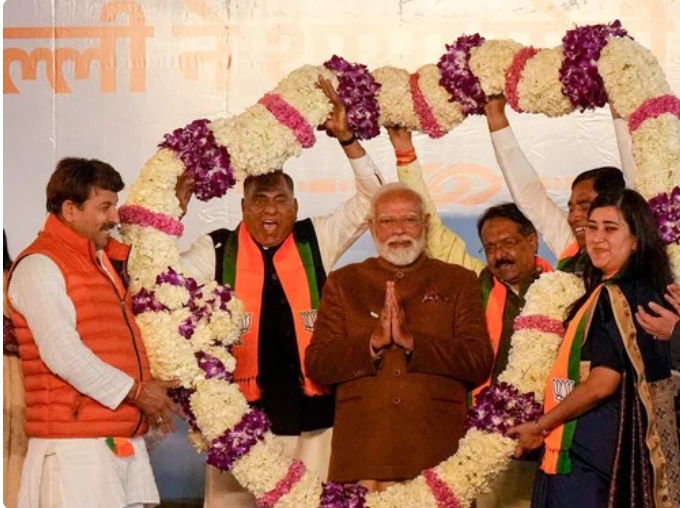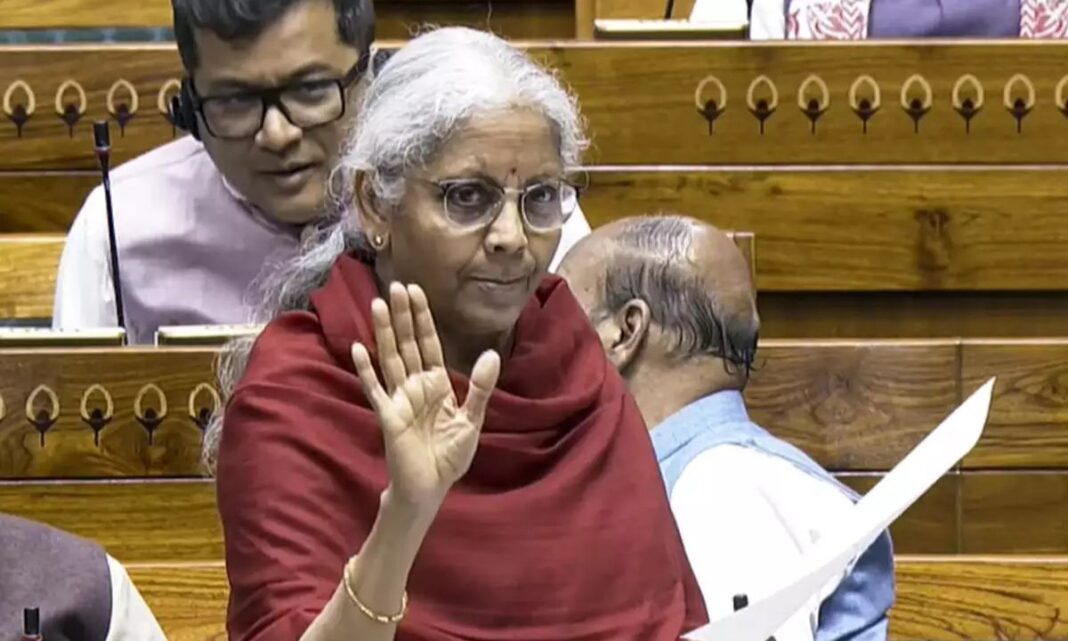By The Sampadak Express
The Bharatiya Janata Party (BJP) is considering appointing two deputy chief ministers in its upcoming Delhi government, aiming to present the national capital as a microcosm of India’s diverse cultural, social, and regional fabric. Party insiders revealed that the move is designed to represent the various castes, communities, and regional backgrounds in the leadership structure, highlighting the party’s focus on inclusivity.
Even though the BJP clinched a historic victory in Delhi, securing the national capital for the first time in 27 years, the party has yet to announce its chief ministerial candidate. The decision is expected to be finalized after Prime Minister Narendra Modi’s return from the United States, according to sources within the party. BJP leaders are deliberating on the matter, and an official announcement is likely to follow soon.
The first meeting of the BJP’s newly-elected Legislative Party is anticipated to take place on Sunday. The gathering will include all 48 BJP MLAs who secured their seats in the recent Delhi elections. The meeting will be overseen by two senior members from the national BJP leadership, who will supervise the selection process for the Chief Minister and the Cabinet.
The idea of having two deputy chief ministers follows a precedent set by other BJP-ruled states, such as Uttar Pradesh, Madhya Pradesh, and Rajasthan, where two deputy chief ministers have been appointed to strengthen the regional and caste-based representation in the government. The dual deputy CM model is seen as a way to balance the demands of various political factions and ensure the party’s appeal across different communities in Delhi.
Under the previous Aam Aadmi Party (AAP) government, Manish Sisodia served as the deputy chief minister of Delhi. However, the BJP’s proposed structure would mark a shift in leadership with a new emphasis on showcasing the party’s broader reach across the diverse population of the capital.
As the BJP moves forward with its plans, political analysts are keenly observing how this new arrangement will impact governance in Delhi, as well as its symbolic significance in a state that remains at the heart of national politics.
The BJP’s strategic decisions in the coming days will likely play a crucial role in shaping its government in Delhi, marking a new chapter in the party’s dominance over the city after nearly three decades of AAP rule.






